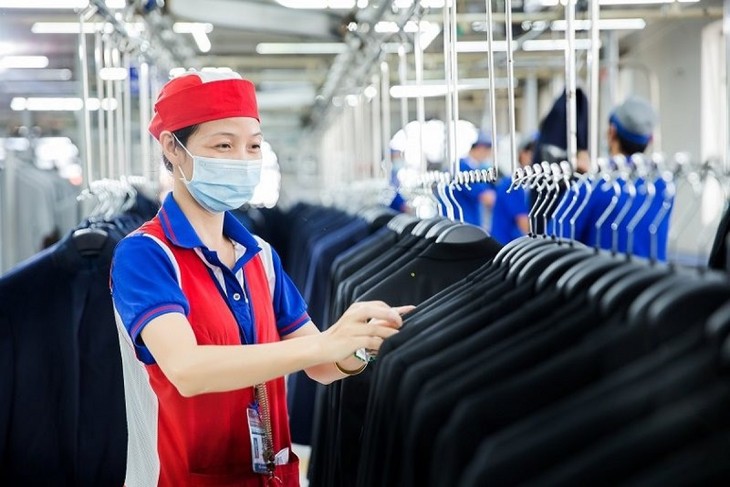(VOVWORLD) - Vietnamese garment and textile businesses have diversified products and expanded their market to maintain production and jobs for workers.
 Garment and textile businesses seek ways to maintain orders as demand falls (Photo: VOV) Garment and textile businesses seek ways to maintain orders as demand falls (Photo: VOV) |
Over the past 3 months, many garment and textile businesses in HCM City have worked at 60% of capacity due to a decline in orders. To maintain production and ensure jobs for workers, businesses have sought new customers and new markets and diversified their products.
Thanh Phat Ltd. Company in Go Vap district which specializes in making clothing for export to the US, Japan, and Malaysia has had to shift to the domestic market. 70% of its products now are for Vietnamese consumers.
Thanks to diversifying its markets, Thanh Cong Trade-Investment-Garment and Textile Company has exported its products to the US, Europe, Japan and the Republic of Korea and its orders are filled for the second quarter.
Tran Nhu Tung, Chairman of the company’s Board of Directors, said: "We have focused on sustainable, environment-friendly production and a greener, cleaner factory to meet our customers’ demand. As a result, we have received new orders. Otherwise we would have missed our opportunity as the market recovers."
Director General of the Garment 10 Corporation Than Duc Viet said Vietnamese garment and textile businesses have focused on marketing, cutting costs, expanding capacity, increasing productivity, and investing in equipment and technology.
"A shortage of orders is a problem not just in Vietnam but in other countries like Bangladesh, India and China. Our company focuses on orders for high-quality and relatively high-priced products." said Mr. Viet.
Thanks to anticipating prolonged difficulties in the global market, many businesses have maintained their production and jobs for workers. They have prepared capital and resources so as to be ready when the market recovers.
Many enterprises in the Vietnam National Textile and Garment Group (Vinatex) have invested in knitwear production chains to supply raw materials to fabric and garment manufacturers, reduce their yarn inventories, and increase the value of the end products. At the same time, they have developed energy-saving and emission-reduction solutions to cut costs and meet customers' environmental requirements. Vietnam hopes to earn 45 billion USD from garment and textile exports this year.